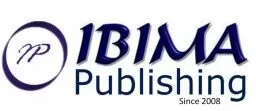Abstract
For young athletes, an optimized diet is important for growth, health and athletic performance. Data about nutrition knowledge, nutrient intake and food choice in athletes are rare. Aim of the study was to analyze nutrition knowledge and food choice of young athletes. 559 young athletes (59% male; 11.7±0.8 years; 18.4±2.5 kg/m2 ) were included in the study. Food choice was assessed by a standardized Food-Frequency-Questionnaire and Healthy-Eating-Index (maximum 50 points, HEImax). Nutrition knowledge was checked using a nutrition knowledge questionnaire (NKQ; 12 items, maximum 24 points). For a better overview, total NKQ-score was divided into 6 categories according to the German school grading system. All results are presented as mean±standard deviation. Mann-Whitney U tests and Kruskal-Wallis one-way ANOVA by ranks were used, respectively, to check for differences between gender and sports discipline. Relationship between total NKQ- and HEI-score was assessed with Pearson´s correlation coefficient (α=0.05). Young athletes reached 35±10 points (70±18% HEImax) in food choice and 9±3 points (37±12% of the maximum score) in NKQ. There were no statistically significant gender differences in NKQ- (p=0.21) or HEI-score (p=0.48), respectively. NKQ-score showed that intake of vegetables and fruits was significantly affected by sports discipline (p<0.05). Intake of dairy product was higher in males than in females (p=0.02). No correlation between NKQ-score and HEI-score was observed (rp=0.03, 95% CI [-0.17, 0.39], p=0.45). In conclusion, both nutrition knowledge and food choice is insufficient in young athletes. Focus should be set on nutrition education programs to improve nutrition knowledge and food choice of athletes.



